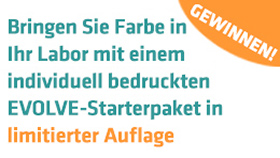Am I Good Enough to be a Scientist?
Career strategies for young European scientists
Antonio Marco, Labtimes 03/2015
Page 1 | Page 2 | Page 3
Preoccupation with applied science
Not everybody gaining a degree in science wants to pursue a research career. But quite often, a fresh graduate decides to go into industry or to work in applied science because he/she thinks that basic science is less important. We are constantly told that basic science is important – but that’s not what we see. In general, governments funding basic science have what they call ‘strategic priorities’ or ‘programme areas’, which are, as a matter of fact, a prioritisation of applied over basic sciences. Society also sees applied science as more useful than the basic sciences. So, it is understandable that many young researchers move towards a more applied field with the goal in mind of attracting grants and fellowships, or with the hope of contributing to the ‘real’ problems that will lead to a better society. But still, there is no applied science without basic science.
Cajal’s basic science research programme was not easy to develop in 19th century Spain. He often supported his research with his own money and even created a scientific journal to publish his findings. He encouraged young investigators to focus on basic research since “applications of new data will come in due time”.
This line of thought was further developed by Roosevelt’s director of the Office and Scientific Research and Development, Vannevar Bush: “A nation which depends upon others for its new, basic scientific knowledge will be slow in its industrial progress and weak in its competitive position in world trade” (quoted in Donald E. Stokes, 1996, ‘Pasteur’s Quadrant’, Brookins Institution). This policy defined the grant programmes we know today in the Western World but the economic crisis is now changing how science is funded.
To succeed in the current situation, we must endorse a mixed strategy, focussed on basic science but foreseeing potential applications. Donald Stokes defines this type of approach as the “Pasteur’s quadrant” or “use-inspired basic research”. If you are worried about applied science, then the strategy you should be using to keep knowledge in progress is basic science.
Perceived lack of ability
This trap is the most common. Did you ever ask yourself, “Am I smart enough to be a scientist?” As a matter of fact, you must be smart enough to realise that you may not be smart enough. That may sound silly but it makes a lot of sense. In their influential paper ‘Unskilled and unaware of it’, Kruger and Dunning showed that “incompetence […] causes the inability to recognize that one’s performance is poor” (J Pers Soc Psychol, 77(6):1121-34). In other words, if you are not smart enough, you may not be able to understand that you have some limitations.
This same idea in a different context was put forward by Socrates some 2,500 years ago: “I know that I know nothing”. This Socratic ignorance is a necessary quality for any scientist. If you have ever asked yourself whether you are smart enough to be a scientist this means that, most likely, you are smart enough for science. Certainly, you’re ignorant enough (in a Socratic sense) to be curious, which is the main quality a scientist must possess.
Page 1 | Page 2 | Page 3
Last Changed: 25.05.2015






